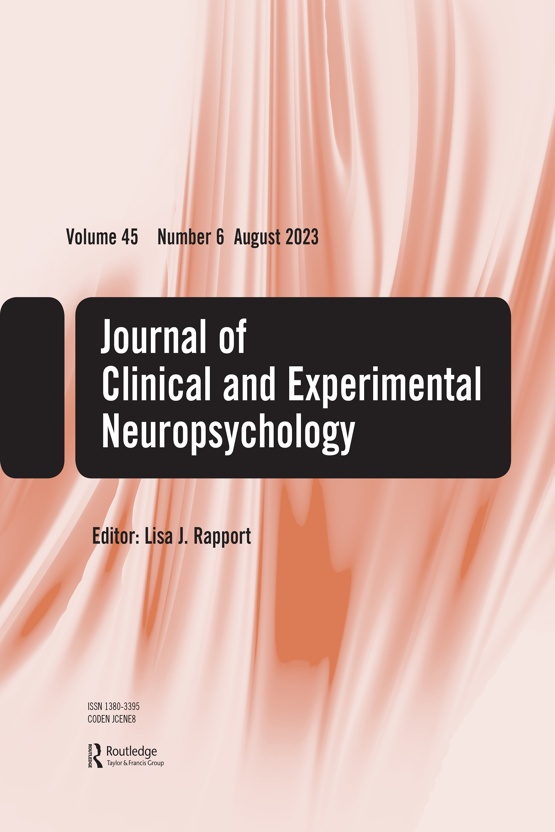Submit a Manuscript to the Journal
Journal of Clinical and Experimental Neuropsychology
For a Special Issue on
Current Practices and Challenges in Providing Doctoral Training in Clinical Neuropsychology
Abstract deadline
02 August 2024
Manuscript deadline
15 November 2024

Special Issue Editor(s)
Dr. Matthew Calamia,
Louisiana State University
[email protected]
Dr. Rebecca Ready,
University of Massachusetts Amherst
[email protected]
Current Practices and Challenges in Providing Doctoral Training in Clinical Neuropsychology
There has been tremendous growth in the number of doctoral programs emphasizing clinical neuropsychology training in the United States over the past few decades. However, there has been limited communication across programs. Doctoral training is permitted - under the Houston Conference Guidelines - to vary in the degree of specialization provided in clinical neuropsychology. Programs set their own exit criteria. There has been very limited attention in the literature as to what kind of training in clinical neuropsychology is provided in doctoral programs, the challenges they face, and how doctoral training integrates with more advanced levels of training at the internship and postdoctoral level. This special issue aims to explore a broad spectrum of topics related to doctoral training in clinical neuropsychology.
Topics of interest include, but are not limited to:
- Heterogeneity in Training Models: Examining different levels of intensity across programs (e.g., as described by Taxonomy for Education and Training in Clinical Neuropsychology) and outcomes of those programs. Examining how these levels of intensity at the doctoral level integrate with other levels of clinical neuropsychology training. Examining how other differences across programs (e.g., number of clinical neuropsychology faculty, location and size of the surrounding community) influence approaches to training.
- Competencies and Training Innovations: Providing specific guidance on how to implement training in one or more core competencies in clinical neuropsychology at the doctoral level and describing the development and use of competency-based assessments by programs. Exploring innovations in training including the use of novel technologies in neuropsychology coursework, practicum experiences, and research training.
- Graduate Student and Faculty Perspectives and Experiences: Describing the challenges faced by graduate students and faculty and their perspectives on ongoing tensions and debates within the field that affect doctoral training.
- Mentorship and Pipeline Issues: Evaluating mentorship programs for current graduate students and programs designed to increase applications to doctoral programs from those from diverse backgrounds underrepresented in the field of clinical neuropsychology. Exploring current doctoral program challenges to growth and sustainability (e.g., recruitment of faculty, extraordinary high numbers of qualified applicants for few spots) which limit opportunities for future trainees
Looking to Publish your Research?
Find out how to publish your research open access with Taylor & Francis Group.
Choose open accessSubmission Instructions
Potential authors must email their letters of intent by Friday, August 2nd to the Guest Editors: Dr. Matthew Calamia ([email protected]) and Dr. Rebecca Ready ([email protected]).
Letters of intent should include the proposed manuscript title, list of authors and affiliations, and a brief description of the research aims, methods, results (if yet available) and implications for the field.
The Guest Editors will then invite selected potential authors for submission of their full manuscript for review. Full manuscripts will be due by Friday, November 15th.
Potential authors are highly encouraged to contact Dr. Calamia and Dr. Ready with any questions or concerns in advance of their submission to the special issue. The Guest Editors aim to be highly engaged in the process and are willing to work with potential authors to ensure their submission is a strong fit for the special issue.